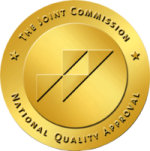UTHealth Houston Harris County Psychiatric Center
Bipolar Disorder
Causes • Signs & Symptoms • Treatments • Medication • Living with Manic-Depressive Disorder
Manic depression, known in medical terms as bipolar disorder, is a serious, chronic mental disorder. It is more than just a simple mood swing. Bipolar patients experience distinct periods of altered mood, either manic (euphoric or irritable) or depressed. Mixed states can also occur.
It is estimated that one in 100 people suffer from manic-depression. It generally strikes before 35 years of age. The length and frequency of cycles between the low of depression and the high of mania vary from person to person, as do the other symptoms of manic-depression.
Recent studies have led scientists to believe genetic changes in body chemistry may be a cause of manic-depression. Researchers believe bipolar patients' neurotransmitters - chemicals that allow brain cells to communicate, are affected during phases of the disease.
Other factors, such as negative family relationships, serious illness and substance abuse, can complicate manic-depressive disorder. Close relatives of people with manic-depression are sometimes more likely to develop either depression or manic-depression than the general population.
People who suffer from manic-depressive disorder will likely display one or more of the following behaviors during the manic phase:
- Excessively euphoric or expansive mood
- Irritability and anger that is inconsistent with the situation
- Hyperactivity
- Grandiose ideas or delusions; extreme optimism
- Lack of good judgment
- Flights of ideas or racing thoughts; talking in a rush and changing from topic to topic; disorganized thoughts
- Decreased need for sleep
- Sudden rage, irritability or paranoia
- The depressive phase has the same symptoms of major, or "unipolar," depression:
- Feelings of worthlessness, hopelessness, helplessness, total indifference and/or extreme guilt
- Prolonged sadness; unexplained crying spells
- Jumpiness or irritability; withdrawal from formerly enjoyable activities or relationships
- Inability to concentrate or remember details
- Loss of appetite or great increase in appetite; constant fatigue, insomnia
- Physical ailments that cannot be explained otherwise
- Thoughts of death or suicide attempts
While manic depression is a serious mental illness, it is treatable. Anyone who may suffer from manic-depressive disorder should seek a complete medical evaluation to rule out any other mental or physical disorders that could mimic manic-depression. Treatments should stabilize the manic-depressive cycle and focus on the mood being experienced.
Lithium carbonate, the most common medication for manic-depression, can reduce the number and intensity of manic episodes or prevent them altogether. For patients who do not respond well to lithium, physicians have had success with other medications like carbamazepine and valproate.
Like many others, these medications can have negative side effects when not used properly. However, under careful physician guidance, lithium and similar medications can return patients to normal, productive lives.
Living with Manic-Depressive Disorder
Living with manic-depression can be a terrifying ordeal. Like many other mental illnesses, manic-depression can destroy lives if left untreated. It can complicate relationships, especially with close family and friends. A victim's employment and financial standing are also at great risk. It can even result in suicide. The personal and social consequences of manic-depressive disorder may be helped by psychotherapy in addition to medication. Because of the intense nature of manic-depressive disorder, family members may benefit from counseling as well. Not only can they find emotional support, education and understanding, but they may learn to participate in the patient's treatment.


